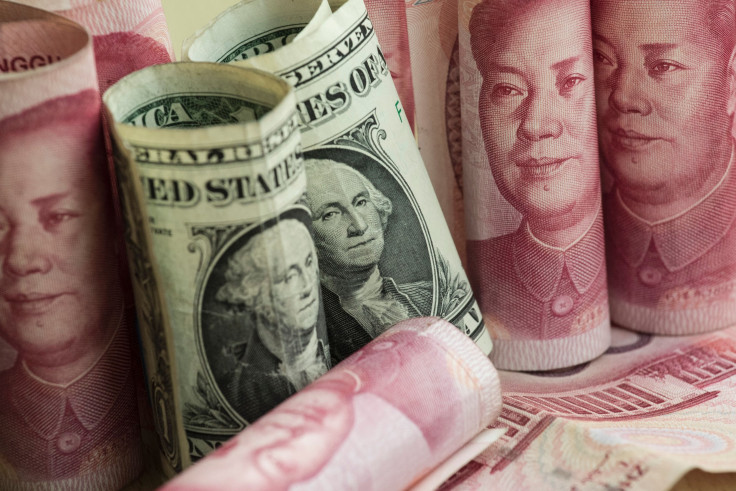Stock Market Plunges: Dow Down 391 Points As US-China Trade War Continues

The worsening state of the trade war between U.S. and China weighed heavily on sentiments of Wall Street investors, who fled stocks Monday sending the Dow Jones Industrial Average plunging 391 points, or 1.49%, to 25,896.44.
The S&P 500 followed suit, plummeting 36.21 points, or 1.24%, to 2,882.44. The tech-heavy NASDAQ Composite slid 1.2% to 7,863.41. It was Wall Street’s second straight down day and might presage similar sentiments for the rest of the week, according to some analysts.
Investors are concerned Trump’s new 10% tariff on China to be imposed Sept. 1 will preclude any trade deal being made within the year while worsening the trade war.
Goldman Sachs Group Inc. on Sunday said the risk of an economic recession engulfing the U.S. are increasing. It again said it no longer expects a trade deal between ongoing U.S.-China before the 2020 U.S. presidential election.
Goldman Sachs also reduced its fourth-quarter GDP growth forecast by 20 basis points to 1.8%, emphasizing the much greater negative impacts of recent events in the trade war.
"The ongoing trade dispute between the U.S. and China appears to have escalated into a full-blown economic conflict," said David Kostin, chief U.S. equity strategist at Goldman Sachs.
Wall Street staged a surprising and strong recovery last week but selling resumed with a vengeance on Friday, again on account of the uncertainties created by the trade war and the visibly slowing global economy. Despite the turmoil, the Dow ended last week lower by less than 1%.
The benchmark 10-year Treasury yield again fell on Monday, this time by 1.63% after sinking to its lowest point since 2016 last week. The spread between 2-year and 10-year Treasury yields narrowed to only 6 basis points Monday, which is a tad away from its lowest level since 2007.
Bank stocks and interest rates both plummeted Monday. The spectre of the Aug. 5 bloodbath when major U.S. stock averages suffered their worst day of the year thus far still lingers.
Trump now looks to the U.S. Federal Reserve to cut interest rates by larger margins and on more occasions to save the U.S. economy from an economic recession.
“The bear is alive and kicking,” said Mike Wilson, Morgan Stanley’s chief U.S. equity strategist. “We think the failed breakout last week for the S&P 500 confirms we are still mired in a cyclical bear market.”
Market bellwether Caterpillar lost 2.2% while Boeing dropped more than 1%. Retailers being hit by the China tariffs remain under pressure with Office Depot plunging 5.6% while Nordstrom slipped 2.35%.
Banks were also feeling trade heat with Bank of America and Goldman Sachs both losing more than 2%. J.P. Morgan gave-up 1.87%. The SPDR S&P Bank ETF was 2.1% lower Monday.
Uncertainty as to whether China intends to weaponize the yuan down the road still remains and hasn’t been deterred by the continuing weakening of the currency.
China on Monday again kept the midpoint trading rate of the yuan slightly above RMB7.00 to $1.00. The People’s Bank of China (PBOC) set the official midpoint reference at RMB7.0211 to $1.00 on Monday.
© Copyright IBTimes 2024. All rights reserved.





















